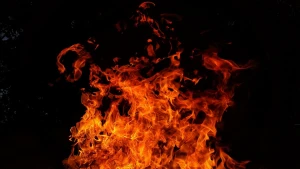
Russia plans to deploy up to 70,000 troops to Kursk region - Zelenskyy
President of Ukraine Volodymyr Zelenskyy has stated that Russia is attempting to deploy 60,000 to 70,000 troops to the Kursk region, where Ukraine’s operation is ongoing
Speaking at the 20th Annual Yalta European Strategy Meeting, Zelenskyy noted that while Russia has launched a rapid offensive in the area, it has not achieved significant success.
He mentioned that Ukraine is aware of approximately 40,000 Russian troops currently stationed in the Kursk region.
“In the Kursk region, the Russians have started a swift counteroffensive with the aim of deploying 60,000 to 70,000 troops. We know that about 40,000 are already there. They sought quick breakthroughs and referred to it as 'de-occupation.' It’s notable that while we are discussing the de-occupation of our territory, the Russians are also talking about de-occupying theirs. However, we have yet to see any substantial success from their side. The Ukrainian military is holding strong and doing everything necessary to support our strategic and political efforts,” Zelenskyy said.
The president stressed that Ukraine’s operations in the Kursk region and the fighting in the Donetsk region are closely linked.
“For instance, before the Kursk operation, the ratio of shells used in Donbas, specifically in Pokrovsk, was 1 to 12. Today, it’s 1 to 2.5. We understand that the situation has not yet evened out. To stop the advance and regain our position, we need more resources than the Russians,” Zelenskyy explained.
He also noted that while the front line situation remains complicated, there has been some improvement in the Pokrovsk sector over the past week.
Ukraine’s cross-border incursion in Russia’s Kursk region
On August 6, the authorities of Russia's Kursk region stated that the Ukrainian Armed Forces allegedly tried to break through the Russian border, but were allegedly pushed back. Later, the Russian Defense Ministry reported that "the Ukrainian sabotage and reconnaissance group retreated to its territory.”
Ukraine's Main Intelligence Directorate refused to comment on the statements regarding the Kursk region. However, NV media, citing its own source in Ukrainian intelligence, wrote that the events in the Kursk region "definitely did not involve fighters of the Russian Volunteer Corps, who are fighting as part of Ukraine's Armed Forces.”
The Institute for the Study of War noted that the Russian Defense Ministry, acting governor of the Kursk region Alexei Smirnov, and some propagandists have different versions of the events in the Kursk region.
On August 7, Kremlin leader Vladimir Putin convened the Russian military leadership to discuss the situation in the Kursk region, which he called a "large-scale provocation." At the time, Russian Foreign Ministry spokeswoman Maria Zakharova called on the international community to "strongly condemn the Kyiv regime's criminal attacks on Russian territory."
On the same day, Russian media reported that workers at the Kursk nuclear power plant feared that the plant's management had not prepared for a possible attack by the Ukrainian armed forces. Additionally, in the Kursk region, the Russians have started forming UAV operator units from civilians, providing them with up to 10 hours of training.
On August 7, a state of emergency was introduced in the Kursk region.
On August 8, the Institute for War Studies reported that Ukrainian troops confirmed advancing up to 10 km deep into the Kursk region as mechanized offensives continued.
The Washington Post reported that Ukraine has taken control of the gas metering station in Sudzha, Kursk region. Previously, Russia claimed that the Ukrainian Armed Forces had occupied several border villages and part of the town of Sudzha.
Deputy Pentagon Press Secretary Sabrina Singh stated that Ukraine’s actions in the Kursk region in Russia "are consistent with U.S. policy" and do not cause any escalation.
On Friday, August 9, it was reported that terrorists from PMC Wagner intend to fight for Russia in the Kursk region.
The situation on the Ukrainian group's left flank in the Kursk region worsened as the Russian forces began active assault operations, DeepState reported on September 11.
- News














































